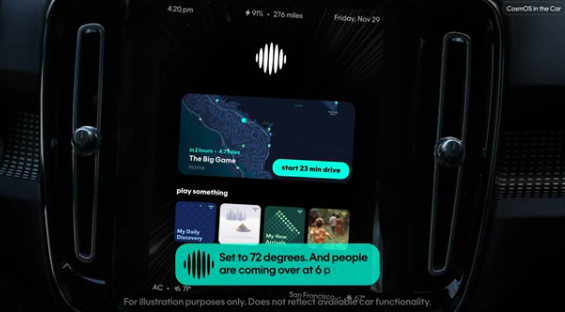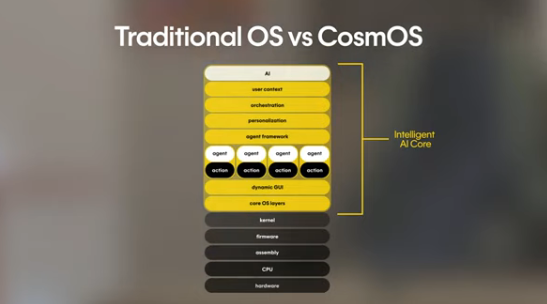Humane recently released a video showing off its new operating system CosmOS, which is designed to become the core of future devices and has been initially used in devices such as cars, TVs, smart speakers, and mobile phones. The video shows the powerful cross-device interaction capabilities of CosmOS, such as controlling the heating at home through a car, and using smart speakers to query recipes, which is very impressive. However, Humane makes it clear that the features and designs shown in the video are working prototypes and simulated experiences and may change in the future. This has drawn attention to the practical application capabilities and market prospects of Cosmos.

In the video, a user interacts with multiple devices through CosmOS: controlling the heating at home through the steering wheel in the car, asking the smart speaker for the recipe for guacamole, asking the TV for the number of goals scored by football players, and letting the phone process electronics. Meeting schedule in email. These applications demonstrate the powerful agent capabilities of CosmoOS and are designed to make it the core operating system for future devices.
However, the device in this video is not Humane's own product, but was developed through the CosmoOS SDK. Humane has not committed to producing the devices itself, but is providing development tools to other companies. Currently, the Cosmos SDK has not been publicly released, and although the company says it is "coming soon," more cooperation information can only be obtained through the registration page.

After the failure of its AI Pin product, Humane is clearly looking for a new business direction. AI Pin has had mediocre performance since its launch in April, with daily returns reportedly exceeding sales. In order to increase sales, Humane lowered the price of AI Pin less than six months after its launch. There were recent reports that Humane was seeking a buyer, with HP as a potential acquirer.
Humane positions CosmOS as a potential pillar of future artificial intelligence devices, but whether it can truly attract manufacturers to cooperate and promote market application remains to be seen. Although the failure of AI Pin has left the company facing challenges, Cosmos may be the key to its future transformation.
Humane's future development will largely depend on the market performance of CosmOS. Whether Humane can successfully attract partners and ultimately build CosmOS into a successful operating system will be the key to whether Humane can get out of the predicament. The success or failure of Cosmos is not only related to the fate of Humane, but also to the competitive landscape of future artificial intelligence device operating systems.